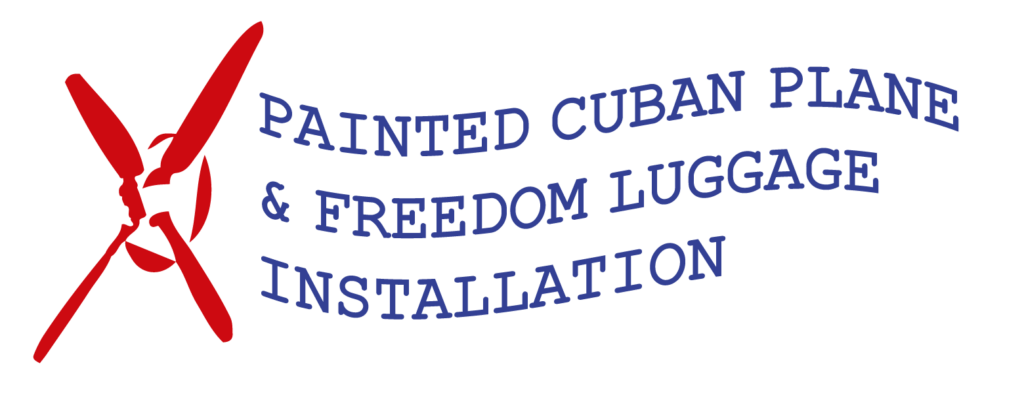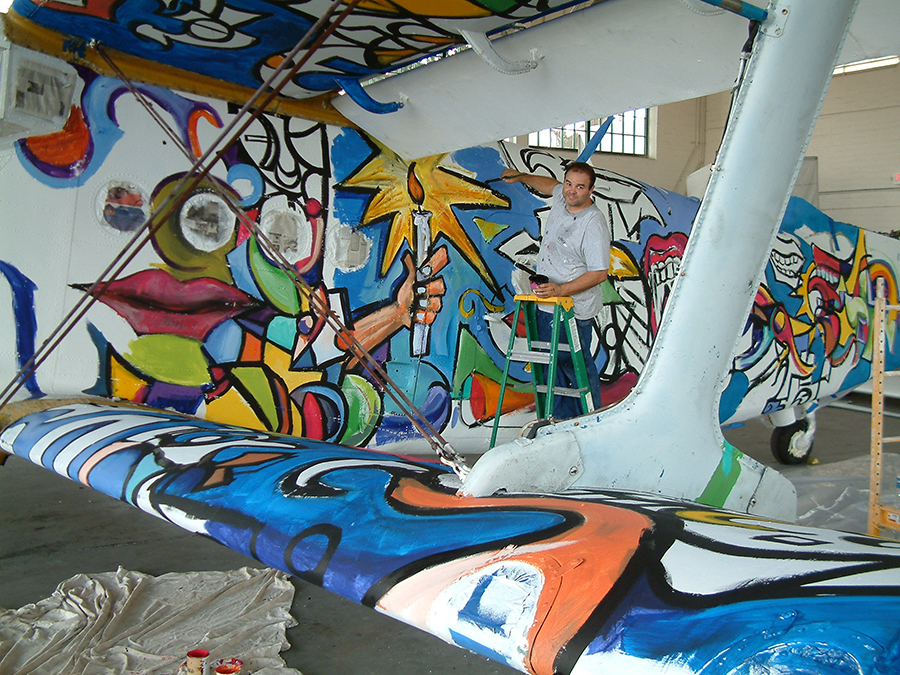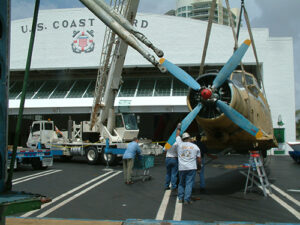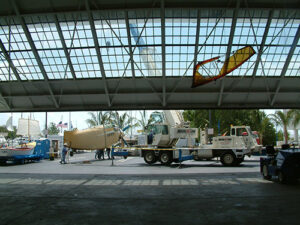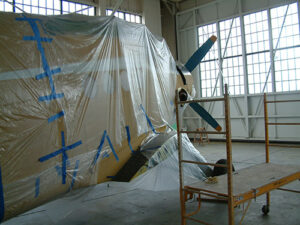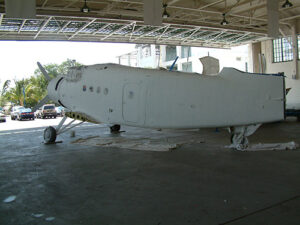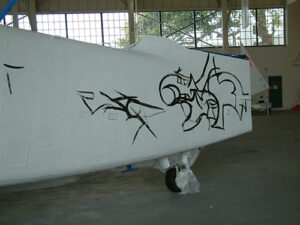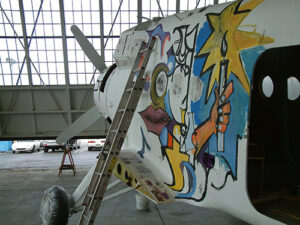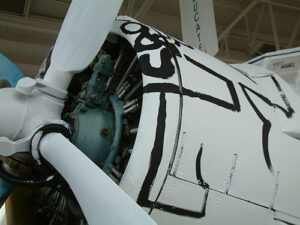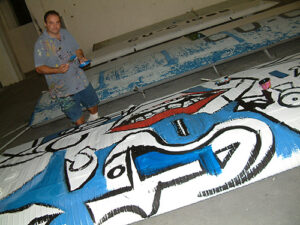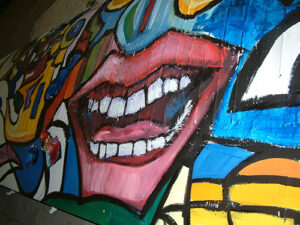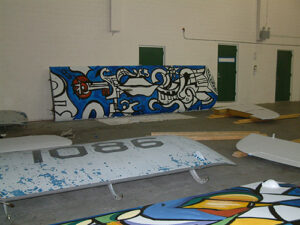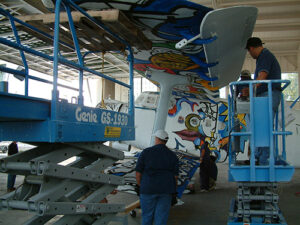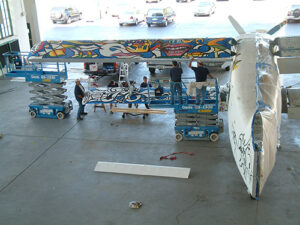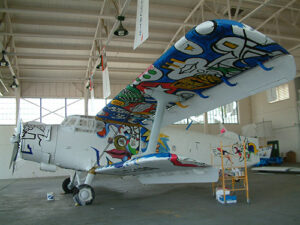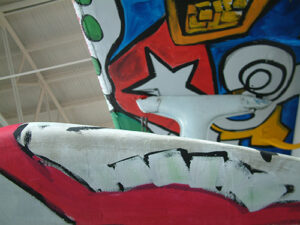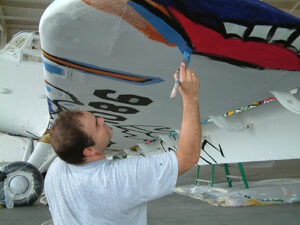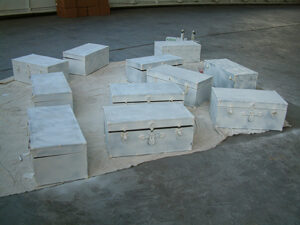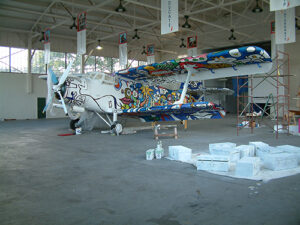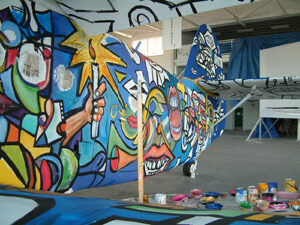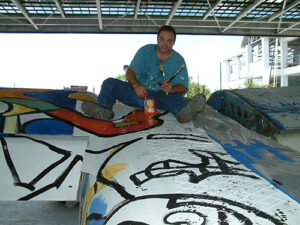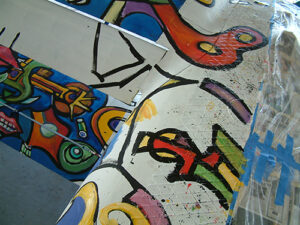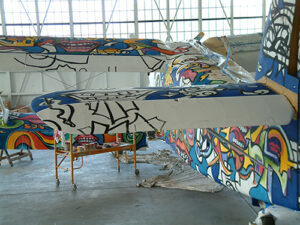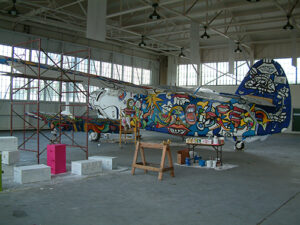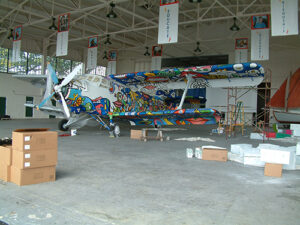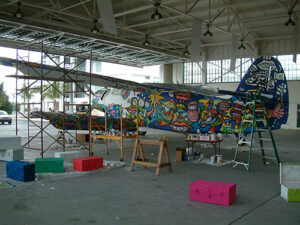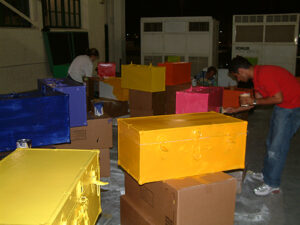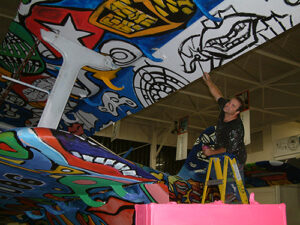Letters
1961
Letter from Manny Diaz
Mayor of Miami
The day is July 21, 1961
A fairly typical morning for me… a typical morning for any child of six in Cuba.
I awoke to the beautiful sunny skies of Havana and a breakfast of “Café con leche” and bread. At the table sat my mother and maternal grandparents, as the traditional Cuban home often included several generations under one roof.
But this was not to be a typical morning.
My father, a political prisoner, would start his day at La Cabaña, a Cuban prison, possibly the worst of its time. Several of his friends had been executed at the “Paredon”…my father’s fate was yet to be determined.
My paternal grandparents dropped in for breakfast. It would be the last time I would see my grandfather, Manolo. He wouldn’t stop crying. I did not know why.
It would also be my last time on Cuban soil. Of course, Mom had only told me that because Dad was in jail, it would be best if I spent the summer in Miami with my uncle, aunt and cousins.
And so, after breakfast, my mother and I left to Jose Marti Airport for my first airplane ride…… An 11am Pan American flight to Miami.
Once at the airport, my mother was told by one of Castro’s “Milicianos” that he had sold my seat on the flight to another passenger for $500.00. My mother now believed we would never be allowed to leave Cuba.
He ordered us to sit and wait in an area of the airport known as “La Pecera” (The Fishbowl). The whole time we sat there I could see my grandparents on the other side of the glass. They cried…….my Mom cried….I cried, but there was to be no more contact between family members.
Finally, the “Miliciano” returned and told my mom that we could both board the plane, but that I had to sit in her lap during the flight. We were the last to board.
As our plane took off for Miami, my mother again began to cry. She cried during the entire flight. This too was to be the last time she would set foot in her country of birth.
I can only imagine her worries, separated from her husband and her parents – Never knowing if she would see them again.
I can only imagine her fears, starting a new life in foreign country with her 6 year old son, with a dime in her pocket, and enough clothes to get us by for only a few days.
We landed at Miami Airport at approximately 3:00 P.M. My uncle and his entire family met us at the airport, and drove us to his 2 bedroom apartment in little Havana, located only one block from where I would run my campaign for Mayor of Miami 40 years later.
After “Café con leche” and some more bread (now called Cuban bread in Miami), all nine of us went to sleep in this small apartment not knowing the fate that awaited us all.
Indeed, July 21, 1961, turned out to be a typical day.
It was a day I will never forget…….. A day that changed the course of my family…..and a day symbolic of Cuban families in exile, bound together by the hope that one day soon, May 20TH will be a day when we can all celebrate the true freedom and independence of Cuba.
1961
Carta de Manny Diaz
Alcalde de Miami
El 21 de julio del 1961 fue una mañana típica para mí¼como lo hubiera sido para cualquier otro niño Cubano de 6 años de edad..
Me levanté bajo un bello cielo habanero soleado y como desayuno, nuestro típico café con leche y “una flauta de pan.” En la mesa, mi madre y abuelos maternos, típico cuadro de una familia cubana.
Pero qué lejos estaba¼de ser ese día¼una típica mañana más.
Mi padre, prisionero político en la Cabaña, temida prisión cubana y donde muchos de sus amigos habían sido fusilados en el sangriento y fatídico “paredón.” Su propio destino aun era desconocido.
En la mesa mi abuelo paterno dejó su desayuno y yo no sabía que sería ésta la última vez que vería a mi abuelito Manolo¼El lloraba…pero yo no sabía el porqué.
Hoy también era mi último día en el suelo Cubano, mientras mi madre con lágrimas en los ojos me decía que seria mejor que fuera para Miami con mis tíos y primos¼ya que mi padre estaba en la cárcel.
Después del triste desayuno, salimos para el Aeropuerto José Martí, en Rancho Boyeros, de donde salía el vuelo de Pan American para Miami a las 11 am. Pero qué lejos estaba¼sería un vuelo sin regreso.
Un miliciano de Castro le dijo a mi madre que había vendido mi asiento a otro pasajero por 500 dólares – lógicamente, tuvimos que esperar y rezar.
Nos ordeno que nos sentáramos en la pecera, salón de cristales, totalmente separado y desde donde podía ver a mis familiares..solo verlos…pero aislados ‑ Mi madre pensaba, que nunca podría dejar a Cuba..
Al final y tras maltratos, el miliciano se dirigió a mi madre y le dijo que ya podíamos abordar el avión, pero que tenía que llevarme en sus piernas, ya que no había mas espacio. Fuimos los últimos en abordar.
Cuando despegó el avión, mi madre de nuevo comenzó a llorar, todo el viaje lloró, era la última vez que vería su tierra natal.
Ahora puedo imaginarme sus temores, sus preocupaciones, era empezar una nueva vida con un niño de 6 años, con solo 10 centavos de capital, era un nuevo comienzo, una nueva responsabilidad, era la máxima prueba de su vida.
Llegamos al Aeropuerto de Miami a las 3 de la tarde, mi tío, con toda su familia, nos esperaba y nos llevó a su apartamento de dos habitaciones, precisamente en esa Pequeña Habana que tantos recuerdos me trae¼..y solamente a una cuadra del local en donde inicie mi campaña de alcalde 40 años después.
Al llegar a nuestro apartamento, comimos lo que había: un poco de pan…llamado ahora “pan cubano,” los 9…porque éramos 9¼nos fuimos a dormir sin saber que nos depararía el destino..
Fue en julio 21 de 1961, un aparente día mas de mi vida ‑ pero será un día que nunca, nunca olvidaré…el día que cambió totalmente el curso de nuestra vida familiar¼pero eso si, un día simbólico, típico de una familia Cubana en exilio, añorando que algún día podramos celebrar el 20 de mayo como un día de verdadera libertad e independencia para Cuba.
1966
Letter from Ana Margarita Martinez
Date of Exile: November 11, 1966
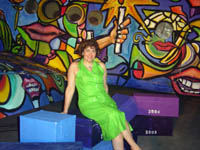
I was six years old when my mom, my grandmother and I left Cuba during the Freedom Flights Exodus. I was so young, yet I remember the sadness. I would never again see my paternal grandmother, or my cousin Juanito who was practically a brother – he passed away at the young age of 33. Thankfully, I was able to see my adoring paternal grandfather, Osvaldo once more during his brief visit to Miami in 1984, as well as my uncle, Juan, who visited in 1994 – he also passed away a few years later at the age of 54. So many loved ones left behind: aunts, uncles, cousins, and friends. I didn’t want to leave. Of course not! Not to an unknown land, unknown customs and an unknown language. Havana was home. Gone would be the trips to El Malecon with my grandmother and my cousin Juanito. I would miss the visits to Tio Delio’s finca and to my maternal great-grandparents’ home in Las Villas where we had get-togethers with great-aunts, uncles, cousins, and many other extended family members. We’d be all alone – mami, abuela, and myself. I’d miss my neighborhood friends and summers in Varadero Beach. But I would never miss the indoctrination, the pressure to become a “pionera” (which I never did), or the oppression that possessed the Havana air. We left everything behind, but not the hope of returning to our loved ones soon.
I remember very little of our few hours in Miami. Everything is a blur. We boarded another airplane that very same day. It was the month of November and it was cold in New York. A new life began in a free place, but not free of hardships. My grandmother and my mom were off to factories, and I was in a new school where only one classmate partially understood me – her parents were Puerto Rican. In my mind, we had left the Havana sunshine for the New York cold. It was dark and cold, not sunny and warm. We’d left family and friends for strangers who didn’t understand us or speak our language. But there were no “pioneros”, no bearded men in army get-ups sounding off an eternal discourse, no “libretas de abastecimiento” (ration cards), and no oppression in the air.
I am forever grateful to my mom and my grandmother for their courage. I wonder sometimes if I would have been brave enough to do the same – to leave the familiar, the security of family and friends, and venture to the unknown as they did, and as so many others did. Thanks to them, I grew up in a free country.
My story doesn’t end there. Mami and abuela spared me from the “voluntary” work, from the horrid camps that all children in Cuba must attend, from the indoctrination, the persecution, the abuse and so many unthinkable things that are commonplace in Cuba. But they couldn’t protect me or prepare me for what was to come. In 1992, the monster caught up with me. Juan Pablo Roque disguised himself as my knight in shining armor. Little did I know then that the man that promised to love, honor and protect me, was exactly what I had escaped from in 1966.
God has a way of turning evil into something positive. Sort of like making lemonade.
I truly pray that this Antonov AN-2 which has been transformed into a wonderful work of art, representative of the two sides of the Cuban people – those who reside in a prison island and those who live in freedom – serves as an inspiration for our community; a symbol of the freedoms that we must help to preserve in the United States, and continue to work ardently to accomplish in Cuba and in every enslaved nation.
1967
Letter from Jorge Mursuli
Left Sancti Espiritus, Cuba and came to Brooklyn, NY, in June of 1967.
“Cuando sali de Cuba, deje………”
I left palm trees, tropical breezes, and lots of cotton shorts (not one picture of me in pants). For skyscrapers, pollution (topic du jour in ’67), and a big yellow parka given to me at our interim stop in Miami at the Freedom Tower.
I left the possibility of knowing what it’s like to live amongst a large, crazy, loud Cuban family with 16 aunts and uncles and a plathora of cousins. (No one else emmigrated till I was an adult). For a New World where a family gathering meant a day with my parents and older sister. It was us against the world.
I left my Tia Estrella, who helped raise me, and her wrinkly hand. I remember rubbing my face on her soft aging skin. For some reason, I loved that. She never married and called me her son. I remember leaving for the airport in a yellow Volkswagen Bug, crying, wondering why “mi Tia Estrella” who was there for me every day after school wasn’t coming with us.
For a latch-key world with overly employed parents and a 13 year old sister that became my afternoon guardian behind a very secured apartment door. My sister became my boss, my cook, and my best friend. I didn’t rub my face on her hands, not even close.
I left future work in sugarcane fields. For enforced study hours, constantly reminded of the working fields I left behind and the choice of fields my parents were now offering, accounting, law, medicine, etc. It was a hard argument to win, so I studied.
What I left pales in comparison to what I have received. It’s a no-brainer for me. However, everyday that I get a little older, I understand more the magnitude of what my parents left. Besides, family, material goods, friends and an entire world they had worked hard to build, they left part of their soul and identity. They were several years older than I am today. It’s almost paralyzing to think what it would be to be uprooted and replanted in a different world with a different language and a much less enjoyable set of day-to-day circumstances. They went from being part of the neighborhood to “spics” in the neighborhood. From running the plant to cleaning the plant.
And from wearing the clothes to sewing them in a dirty factory. It’s humbling, and I am painfully grateful. Mami y Papi, te quiero.
Media
- Exiles’ plane to symbolize Cuban thirst for freedom
By Elaine de Valle
The Miami Herald
May 9, 2004 - Un avión se convierte en obra pictórica
By Noel Sanchez
El Nuevo Herald
May 8, 2004 - Seized Cuban crop-dusting plane reassembled as piece of art
By Associated Press
St. Petersburg Times
May 10, 2004 - Cuban plane becomes art
By Associated Press
Tallahassee Democrat
May 10, 2004 - Un avioneta como símbolo de libertad
By Wilfredo Cancio Isla
El Nuevo Herald
May 19, 2004
